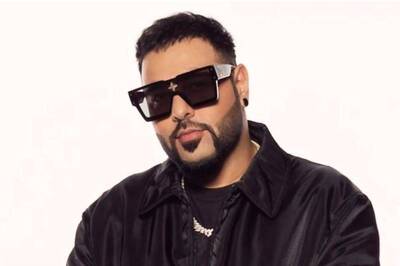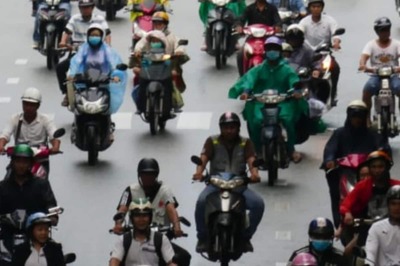
views
LISBON: Angola’s state oil giant Sonangol will next year accelerate reforms and efforts to raise revenue after the pandemic drained investor interest in an asset sale that has so far netted only around $60 million, its CEO told Reuters in a rare interview.
Sonangol is the economic engine for Africa’s number two oil exporter, as the company and the country strive to move on from decades of alleged corruption under Jose Eduardo dos Santos – president until 2017 – whose daughter once headed Sonangol.
In a rare interview with international media, CEO Sebastião Gaspar Martins said the global economic slowdown triggered by COVID-19 had made investors “more conservative”.
But the company’s efforts would gather speed next year, he said, and it has prepared formal plans to shed 39 of the 56 assets it planned to sell. He said sales had so far raised around $60 million without giving more detail.
Buoyed by high oil prices in the last decade, Sonangol piled up assets all over the world, ranging from hotels and bank stakes to a 17th-century Portuguese convent, leading the country’s oil minister to call it an octopus that needed to be tamed.
“Sonangol’s new strategic positioning consists of focusing mainly on core business, ensuring the financing of the investment programme and making the company more agile, competitive and profitable,” Martins said in emailed responses to questions from Reuters.
STAY IN GALP, DIVEST MILLENIUM BCP ASSETS?
Sonangol is selling a building it owns on one of Lisbon’s main boulevards, Martins added, as well as a hotel and convention centre in the Angolan capital Luanda. It is also seeking to divest stakes in the state oil companies of Ivory Coast, Sao Tome e Principe and Cape Verde.
Martins said Sonangol “definitely intends to maintain” its indirect stake in Portuguese energy company Galp and hoped to regain control of a stake it jointly held with the late husband of former Sonangol CEO and Africa’s richest woman Isabel dos Santos, who is at the centre of a court battle in Amsterdam.
Dos Santos denies any wrong-doing during her brief tenure at Sonangol in 2017, saying she rooted out corrupt practices and reined in spending.
On its nearly 20% stake in Portugal’s largest private bank, Millennium bcp, Sonangol is open to either shedding its interest or encouraging a merger with other banks.
“If there is a good opportunity for divestment, we will evaluate it and make the recommendations that seem the most appropriate … Sonangol is monitoring the possible bank consolidation movements in Portugal and, should any opportunity arise, the matter will be evaluated”, Martins said.
OUTPUT CUT, PRODUCTION DECLINE
Angola had huge debts to China and other international creditors even before COVID-19 forced a long pause in Angolan oil drilling this year. [L8N2GP4V2]
Output from the country’s mostly offshore and deep oil wells is set to decline rapidly and to sink to nearly zero by 2040, threatening to scare off energy majors as they seek to cut costs and pivot to cleaner energy.
But Martins said the resumption of exploration and drilling by some energy majors “points to a significantly positive impact in managing the decline in production”.
“The increase in production will be a fundamental factor in reducing operating and production costs.”
Prices would recover in 2021 with the lifting of lockdowns and and the advent of COVID-19 vaccinations, Martins said.
Sonangol, he added, considered itself a “potentially injured party” in relation to alleged corruption that occurred in the Dos Santos era and is cooperating with the country’s public prosecutor to investigate any possible crimes.
Disclaimer: This post has been auto-published from an agency feed without any modifications to the text and has not been reviewed by an editor
Read all the Latest News, Breaking News and Coronavirus News here



















Comments
0 comment